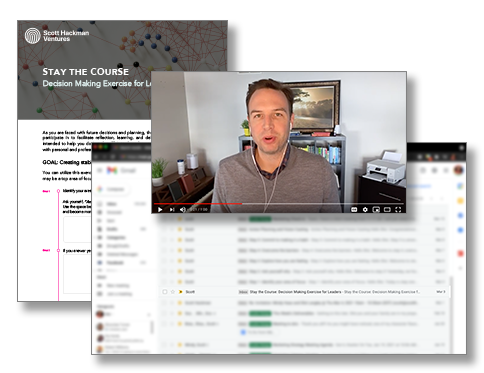October 4-10, 2020 marks Mental Health Awareness Week. This is a week-long awareness initiative that aims to educate and build awareness about mental illness. Mental health conditions are common, impacting 1 in 5 adults – nearly 47 million Americans. Although the general perception of mental illness has improved over the years, studies show that there is still a powerful stigma against mental illness due to media stereotypes and a lack of education.
My goal is to become an integral part of interrupting the negative circuit associated with mental illness. This topic needs a much needed light to be shined on the impacts of leaving individuals who are struggling, untreated.
My Own Journey with Mental Health
Last year, I took part in contributing my story to a book titled “Portraits From The Human Faces Four, Mental Health Struggles and Resilience.” My friend Ted founded the tour and it was an honor to be a small part of it. As someone who mostly understands my life story as a process of recovery, I am deeply passionate about mental health awareness and the resilience that often results from the recovery journey. No single journey is alike but each story and more importantly each life, matters.
I’d like to share the portion of my story with you—because I believe that through sharing our very own personal experiences, we can help others and that is my goal.
“I have been impacted by suicidal thoughts and self-destructive behaviors at key stress points in my life. I have mostly understood my life story as a process of recovery. I was misdiagnosed, overmedicated, and poorly counseled for fifteen years. I was hospitalized for suicidal thoughts, anxiety, and depression a week after my thirteenth birthday. In the hospital, I learned that the story I had been telling myself was not true: I was not F**ked up. I was not sick. I was not a series of mental illnesses. I was a person who needed structure, healthy relationships, and a sense of accountability to stay sane through the ups and downs of living.
I have since benefited from a well-grounded counselor who is helping me shape my identity for the first time outside of other people’s expectations. I also gain insight and support through a twelve step program. I now understand that my self-destructive thoughts were largely based on fear and sadness. I am also learning that my feelings is part of my healing journey. The trauma of growing up in a family that exhibited mental illness has caused the greatest amount of pain in my life and the only way through the pain has been to feel it, name it, and sit with another person who understands it.”
Building Resiliency Through your Mental Health Encounters:
According to the Merriam-Webster dictionary, resiliency is defined as:
re·sil·ien·cy—An ability to recover from or adjust easily to ,adversity or change.
This act of building self-resiliency only comes from going through adversity. Rather than seeing hardship or mental health struggles as a negative, it’s time to start embracing it as an opportunity for necessary growth.
Using your Strengths to Increase Resiliency:
I am a firm believer in The Devereux Adult Resilience Survey (DARS), authored by Mary Mackrain. It provides a reflective checklist that offers information on personal strengths. The information can be used to help individuals build on these strengths, such as creativity and setting limits, so that they can better cope with adversity and the stresses of daily life. Statistical analysis shows that the DARS is an excellent tool for providing adults with an opportunity to gain valuable insights, particularly in these four areas:
- Relationships: The mutual, long-lasting back-and-forth bond we have with another person in our lives.
- Internal Beliefs: The feelings and thoughts we have about ourselves and our lives, and how effective we think we are at taking action in life.
- Initiative: The ability to make positive choices and decisions and act upon them.
- Self-Control: The ability to experience a range of feelings, and express them using the words and actions society considers appropriate.
The purpose of the DARS is not to compare individual’s scores to the population, but to give adults, the opportunity to become aware of personal strengths and areas of need. Upon completion of the Devereux Adult Resilience Survey, individuals are encouraged to reflect how they can use their strengths to increase resiliency.
It takes a fair amount of reflection and practice to change any negative thoughts we might have and to integrate new behaviors that are good for us. You are worth it. Even as you are already a strong, happy person you will want to continue building yourself up to maintain or increase your level of well-being.
Putting it into Action:
You can take the survey below:
Are you struggling with mental health and are looking for help? There are resources available:
Substance Abuse & Mental Health Services Administration (SAMHSA)


Scott Hackman is the Founder and CVO of Scott Hackman Ventures. He has over 15 years of experience in business advising, coaching, and leading growth through transitions.
Meet Scott.



